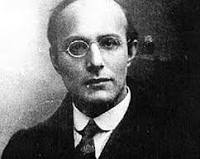“Life is man’s missed opportunity.” Although Karl Polanyi used these words to sum up Hamlet, they also encapsulate his sense after 1947 that capitalist society had forfeited a promising future – a liberating freedom in community. Yet perhaps the opportunity has not been forfeited but delayed. Polanyi’s insight into the connection among freedom, community and personal responsibility can still guide us. Continue reading
Tag Archives: Karl Polanyi
Freedom: Polanyi versus Hayek
Both Karl Polanyi and Friedrich Hayek addressed the ‘big’ question of how we can attain freedom in a complex society. Despite sharing similar backgrounds and experiences, they famously arrived at divergent conclusions. Who is right? Continue reading
Karl Polanyi and the Rejuvenation of Today’s Disoriented Left
Nearly everyone agrees that the left is a mess. The main clash in most Western countries today pits mainstream neoliberals against right-wing authoritarian populists, with the latter channeling the rage instigated by the policies of the former. The mainstream social-democratic parties in Europe are in electoral free-fall. The ‘Pink Tide’ in Latin America has rapidly receded (with a couple of exceptions). And far-right populism is becoming the movement of the traditional working class. A crisis may erupt at any time in the form of another financial meltdown, an ecological disaster, an authoritarian reaction or a foreign-policy miscalculation. Continue reading
The Fascist Virus
In an unpublished article circa 1934 entitled “The Fascist Virus”[i] Karl Polanyi sketches a theory of fascism that remains relevant. This theory is further elaborated in an article entitled “The Essence of Fascism”[ii] and in The Great Transformation (1944). In light of current politico-economic trends, this theory is worth revisiting. Continue reading
The Origins of Today’s Fascist Tendency
In responding to the threat of today’s fascist tendency, an effective strategy depends upon a robust diagnosis. It is clear that right-wing populists, the harbingers of this tendency, are channeling the resentment and rage of substantial segments of national populations. But where precisely does the anger come from? Continue reading
Interview with Richard Sandbrook on Reinventing the Left

Ali Burak Guven (ABG): What was your motivation for writing Reinventing the Left?
To be honest, I never set out to write such an ambitious book. I originally conceived the project as a critique of neoliberal development doctrine. But one thing led to another, and my inclination to move beyond critique to the central question of “what might be done” came to the fore. This, to my mind, raised the issue of the viability and promise of the democratic left. Continue reading
The Democratic Critique of Neoliberalism
This interesting reflection by William Davies assesses the contention that neo-liberalism, that much abused term, refers (using Karl Polanyi’s terms) to the highest stage of disembedding the economy from society. According to this view, homo economicus now reigns supreme in a national society and world in which economic calculations, especially the financial return on investments, are the only rational basis for decision-making in all spheres, including the university. With people reduced to human capital, nature to natural capital, knowledge to intellectual property and money to financial capital, society is fully subservient to the logic of the market. But, if this is the doctrine of neo-liberalism, is it also the existential reality? No, because the neoliberal vision is an utopian as the earlier liberal vision. A sustained effort to attain the vision will devastate human institutions and nature, leading to unpredictable and possibly deadly protective movements.

Why Polanyi and Not Marx?
A recent Marxist critique of Karl Polanyi’s theoretical approach concludes that there is nothing wrong with the latter that cannot be remedied by a major infusion of key Marxist concepts. Benjamin Selwyn and Satoshi Miyamura in their 2014 New Political Economy article display an impressive grasp of Polanyian as well as Marxist categories. Yet, in their critique, they never consider why Polanyi, who was both knowledgeable of, and sympathetic to, Marxism in his early and middle years, eventually broke with Marxism to forge his own analytical path. Might he not have had good reasons for doing so? Continue reading
Six Reasons for Reading Karl Polanyi (Even If You Study the Global South): Part II
In addition to reading Karl Polanyi for his appealing normative stance and transdisciplinary approach, I am drawn to four other attractive features. Continue reading
Six Reasons for Reading Karl Polanyi (Even If You Study the Global South): Part I
Why do social scientists select one theoretical framework rather than another? Continue reading